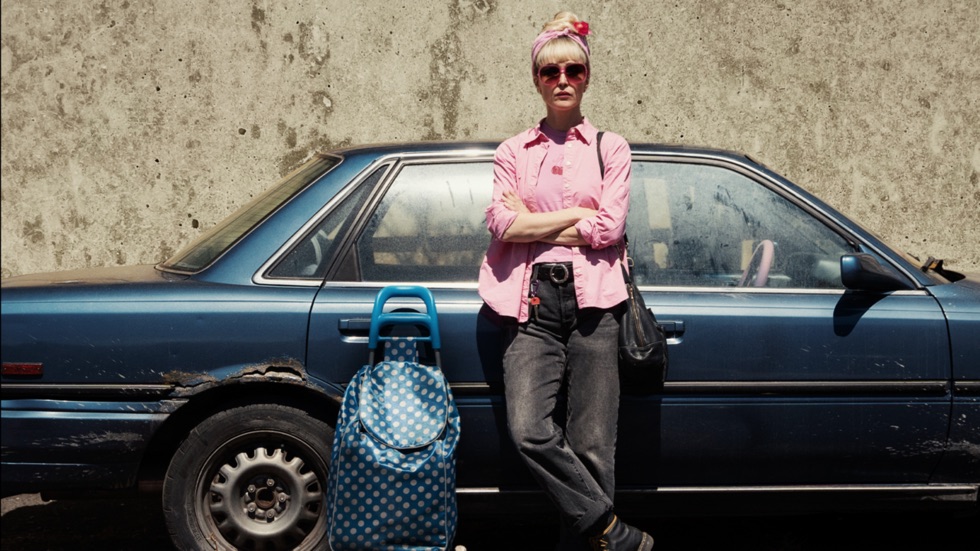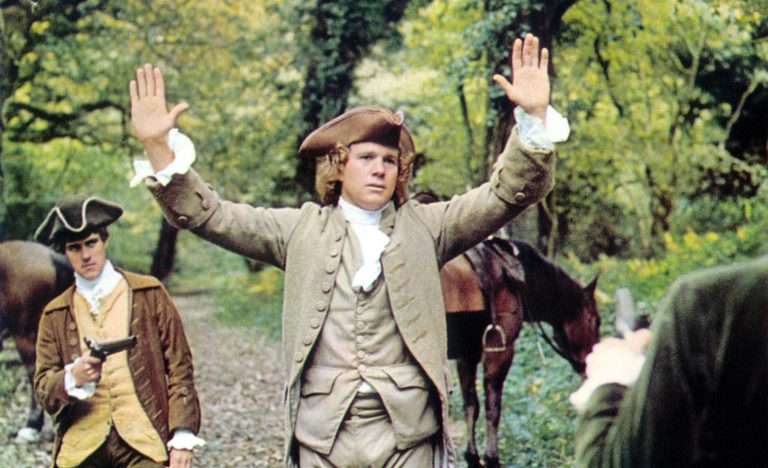Adapted from a real-life incident, Stephanie Laing’s “Tow” is a stirring celebration of a woman who took on the system. Seattle’s Amanda Ogle (Rose Byrne) is going through a tough time. She’s homeless, though she will not accept it, living in a Toyota Camry. The day she goes for a job interview, she discovers her car has been stolen.
After relentless pressure on the police, the car is eventually found, towed away. She is told by Cliff (Simon Rex), a junior employee at the towing company, that she’ll have to pay upfront a hefty fee to claim the car. Aghast, she protests. Not only does she barely have any money, but she refuses to be fleeced by a grotesque system. She rallies for her rights, unafraid of what the blowback from bigger powers can be. That isn’t even something she takes into account before she sets out to challenge.
Ogle is determined, bullish in her pursuit of justice. She’ll do whatever it takes to get her car back. When need arises, she schools herself in legal recourse. She is quick-witted, smart, and more than capable. It’s only that she’s fallen into a patch of bad luck instead of habitual laziness. When she states her case at court, she’s most impassioned, effective, and wrenching. Without a lawyer’s tactful approach bolstering her, Ogle sweeps judges in her favour. Previously, she’s been told umpteen times that the odds are stacked against her. That she has no experience tackling legal procedures is pushed at her.
Her sense of self-possession ensures she will not allow for defeat. At the church’s shelter run by the stringent Barb (Octavia Spencer), she finds a community of homeless women who band together despite the odd, sporadic misgivings. When one of them succeeds, there’s collective joy and reaffirmation. Without her car, she cannot meet up with her daughter, Avery, who stays in Utah. Eventually, Ogle’s backstory bubbles to the fore, but not before she acquaints you firmly with her ways of putting up a solid fight.
Ogle isn’t someone who’ll take things lying down. She retaliates with all her mustered might, the gift of her resourceful thinking, intelligence, and resilience. Many are startled by her abilities, but she is very clear and emphatic about what she knows and how she can navigate her delicate, thorny situation. She’s never asking for pity. She may be wilfully blind to reality, the mesh of implications.
At the shelter, while others open up about their dire straits, she doesn’t reveal her aches, the pained underside to her projections. So much of her being—her vulnerability—is shrouded in delusion, disguised as defiant pride. She will not admit to herself how severe things have turned. Requesting help, too, isn’t an option worthy of consideration.

“Tow” encompasses the year-long struggle of Ogle to wrest her car back from the grip of the mighty companies. Even as she gets the courts to demand the tow waiver and the car be released, she finds to her horror it’s on its way to an auction. Hence, the road to her recovering the car is bleak. At the shelter, she forms friendships with other women, including Denise (Ariana DeBose), who often lashes out with scathing remarks. Soon, Denise’s own grief over losing access to her children due to her alcoholism buttresses her pent-up rage.
With the zealous support of a newbie lawyer, Kevin (Dominic Sessa, who couldn’t be more endearing), Ogle clobbers her way through the institutional, bureaucratic impositions that seem forever skewed against the impoverished. The rich and powerful get away, heady on their excesses, armed with perfect, unthinking impunity. Those like Amanda Ogle are left to scavenge for themselves with the scraps hurled in mercy. The legal portrait isn’t the most compelling or persuasive bit about “Tow”; rather, much of its wonder is in Byrne’s performance.
Several parts of the legal journey, how Ogle and Kevin work together, come off as more sketchy than nuanced and credible. However, Byrne is in resolute understanding of her character’s attitude, ethos, and spirit. She doesn’t let even a shred of weepy pity drench your view of Ogle. She has stared into Ogle’s soul and holds it up in clear view.
There’s a humbling strength of conviction her performance captures. It’s as unwavering as it is profoundly moving when Ogle finally lets loose the shield she set all around her. Byrne taps this act of self-preservation with ferocity and helplessness. She holds “Tow” together even when it seems to stray into broad strokes. The specificity of her emotional calibrations lends the film heft and vigour.




![The Edge of Seventeen [2016] Review – A Smart Teen Movie with Thin Sugary Layers](https://79468c92.delivery.rocketcdn.me/wp-content/uploads/2017/02/Edge-of-Seventeen-Cover-768x432.jpg)

![Before Midnight [2013] Review: Mature, Poignant and Simply Heartbreaking](https://79468c92.delivery.rocketcdn.me/wp-content/uploads/2017/04/Before-midnight-high-on-films-768x497.jpg)
![The Dark and the Wicked [2020] Review: Cosmic Evil in Lonesome Americana](https://79468c92.delivery.rocketcdn.me/wp-content/uploads/2020/11/The-Dark-and-the-Wicked-768x431.jpg)
![Abyakto [2019] ‘LIFF’ Review: About Unexpressed Nuances of Life](https://79468c92.delivery.rocketcdn.me/wp-content/uploads/2019/06/Abyakto-LIFF-Review-Featured-768x512.jpg)